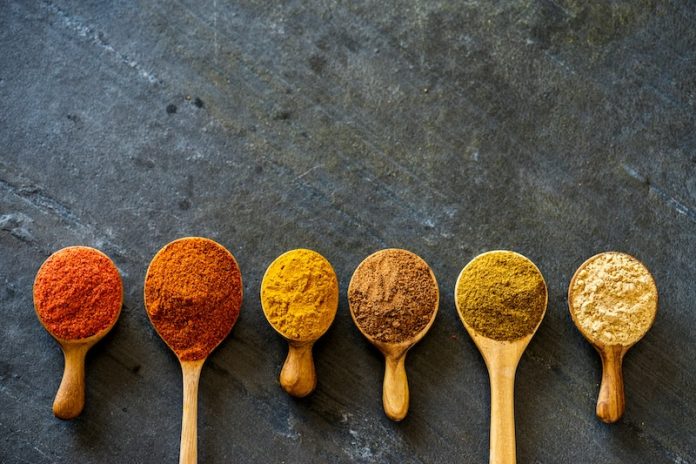
Inflammation is the body’s natural response to injury or illness, but when it becomes chronic, it can harm your health. Chronic inflammation is a key factor in heart disease, the leading cause of death worldwide.
Thankfully, the food choices we make can play a significant role in controlling inflammation, and certain spices are powerful allies in protecting your heart.
Spices have been used for centuries, not just to flavor food but also for their medicinal properties. Modern research confirms that many of these ancient remedies contain compounds that help reduce inflammation and improve heart health.
Let’s take a closer look at some of the most promising spices and the science behind their benefits.
Turmeric is one of the best-known anti-inflammatory spices, thanks to its active ingredient, curcumin. Curcumin has been extensively studied for its ability to lower inflammation by blocking specific molecules that trigger it.
Research has shown that curcumin can reduce levels of C-reactive protein (CRP), a marker of inflammation linked to heart disease.
In one study, people taking curcumin supplements showed significant reductions in CRP levels compared to those taking a placebo. Adding turmeric to your meals or enjoying it in golden milk can be an easy way to give your heart a boost.
Ginger is another superstar spice when it comes to fighting inflammation. Known for its warming, zesty flavor, ginger contains compounds called gingerols and shogaols, which have powerful anti-inflammatory effects.
Studies suggest that ginger can reduce markers of inflammation and even improve cholesterol levels, which are crucial for heart health. In one study, people who consumed 2 grams of ginger daily for 12 weeks experienced lower levels of inflammatory markers.
Incorporating fresh or dried ginger into your cooking or sipping ginger tea regularly can help your heart stay healthy.
Cinnamon is a fragrant spice that does more than make your baked goods taste delicious. It contains antioxidants that fight inflammation and protect your blood vessels from damage.
Some research has found that cinnamon can lower blood sugar and cholesterol levels, which are important for reducing the risk of heart disease.
For example, a study showed that consuming just half a teaspoon of cinnamon daily could lower bad cholesterol (LDL) while raising good cholesterol (HDL). Sprinkle some cinnamon on your oatmeal, coffee, or smoothies to enjoy its benefits.
Garlic might not be a typical spice, but its heart-protective properties are too good to ignore. Packed with sulfur compounds, garlic has been shown to reduce inflammation, lower blood pressure, and improve cholesterol levels.
Studies have found that garlic can reduce CRP and other markers of inflammation, making it a valuable addition to your heart-healthy diet. Eating fresh garlic or using garlic powder in your cooking are simple ways to harness its benefits.
Chili peppers, such as cayenne and red pepper flakes, add a spicy kick to meals and contain capsaicin, a compound known for its anti-inflammatory effects. Capsaicin has been found to improve blood flow and reduce inflammation, which can lower the risk of heart disease.
Research shows that people who regularly eat spicy foods, including chili peppers, may have a lower risk of heart-related problems. If you can handle the heat, adding a pinch of chili to your dishes can spice up your heart health.
Finally, black pepper, often called the “king of spices,” contains piperine, a compound with anti-inflammatory and antioxidant properties.
Piperine enhances the absorption of other beneficial compounds, such as curcumin from turmeric, making it a perfect partner in heart-healthy recipes. Adding freshly ground black pepper to your meals can amplify the benefits of other spices.
Incorporating these spices into your diet is an easy and delicious way to fight inflammation and support your heart. While more research is needed to fully understand their effects, the evidence so far is promising.
By seasoning your meals with turmeric, ginger, cinnamon, garlic, chili peppers, and black pepper, you’re not just adding flavor—you’re investing in your heart health. Small changes can make a big difference, and these spices are a flavorful way to start.
If you care about nutrition, please read studies that whole grain foods could help increase longevity, and vitamin D supplements strongly reduce cancer death.
For more information about nutrition, please see recent studies about natural coconut sugar that could help reduce blood pressure and artery stiffness, and whey and soy protein may reduce inflammation in older people.
Copyright © 2024 Knowridge Science Report. All rights reserved.



